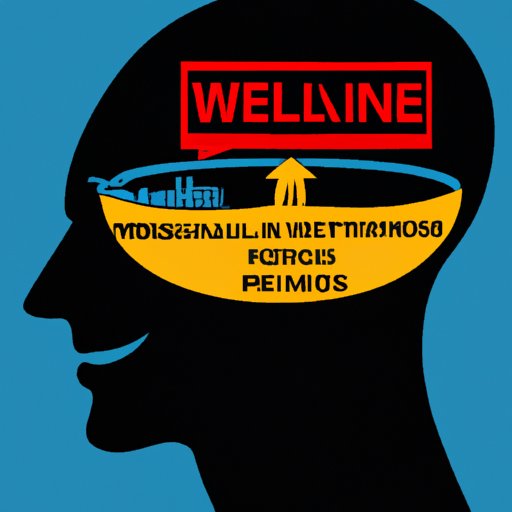
I. Introduction
Financial wellness is the ability to manage one’s finances effectively and maintain stability in the long run. People who are financially well have a better understanding of their money, how to make it work for them, and are better equipped to deal with unexpected financial events. In this article, we will take a comprehensive look at financial wellness, highlighting the importance of being financially well and offering tips on how to achieve it.
II. The Importance of Having Financial Wellness: A Comprehensive Guide for Beginners
Having financial wellness is important because it is a critical aspect of overall health. Financial instability, on the other hand, can lead to stress, anxiety, and depression. People who are financially well are able to handle financial difficulties and have a peace of mind which helps them to focus better on other important aspects of their lives. Key aspects of financial wellness include creating a budget, managing debt, creating an emergency fund, investing, and saving for retirement.
III. 5 Simple Steps to Achieve Financial Wellness
Are you a beginner and wondering how to achieve financial wellness? Fret not. Here are five simple steps to get you started:
- Create a budget and stick to it.
- Pay off debt.
- Build an emergency fund.
- Start investing.
- Save for retirement.
Creating a budget helps you to know where your money goes and makes it easier to make financial decisions. Paying off your debt is an essential step towards achieving financial wellness because it frees up your money, allowing you to redirect it towards other important things. An emergency fund is crucial because it helps you deal with unexpected expenses without derailing your long-term financial goals. Investing is a way to grow your money and achieve long-term financial goals such as buying a home or starting a business. Finally, saving for retirement ensures that you have a comfortable future once you’re no longer working.

IV. The Relationship Between Financial Wellness and Mental Health
Financial stress can lead to poor mental health, and poor mental health can lead to financial instability. Achieving financial wellness can positively impact your mental health by reducing stress, lowering anxiety, and improving your overall sense of wellbeing. To manage financial stress, it’s important to identify the source of the stress and take steps to address it. Seeking professional help or talking to a trusted friend about your financial challenges can also help manage the stress that comes with financial struggles
V. The Dos and Don’ts of Achieving Financial Wellness
When trying to achieve financial wellness, there are certain do’s and don’ts to consider. Firstly, it’s important to do your research before making any financial decisions. Avoid taking on too much credit card debt as it can have a negative impact on your credit score, interest rates, and financial stability. Automating bill payments is a simple yet effective way to ensure that your bills are paid on time and avoid late fees. Finally, creating an emergency fund is key to financial wellness, so start small and build it gradually over time.
VI. The Benefits of Having Financial Wellness
There are numerous benefits to achieving financial wellness. Firstly, achieving financial wellness can help reduce financial stress which can negatively impact your overall health. Secondly, it can help you achieve your financial goals such as paying off debt, buying a home, or taking a dream vacation. Additionally, having good financial wellness helps you to prepare for emergencies and unexpected surprises. Finally, financial wellness can lead to overall financial freedom, allowing you to live life on your terms.
VII. How to Teach Your Kids About Financial Wellness
Teaching your children about financial wellness is essential to give them the skills they need to manage their finances well. Some tips for teaching kids about financial wellness include setting an example by demonstrating good financial habits, giving them an allowance, and talking openly about money. Using games, activities, and real-life scenarios can also make learning about money fun while also teaching children important financial lessons.
VIII. The Benefits of Investing in Financial Wellness Programs for Employees
Employers who invest in financial wellness programs for their employees can enjoy numerous benefits. Such programs can help employees to manage their finances effectively, improve their productivity, and reduce turnover rates. Financial wellness programs can also help to build employee morale and boost overall job satisfaction. By investing in employees’ financial wellness, the employer is demonstrating a commitment to the employees and their overall wellbeing.
IX. Conclusion
Financial wellness is an essential aspect of overall wellness that can positively impact our everyday lives. By following the tips we have highlighted throughout this article, you can achieve financial stability and experience numerous benefits such as reduced financial stress, improved mental health, and overall financial freedom.




